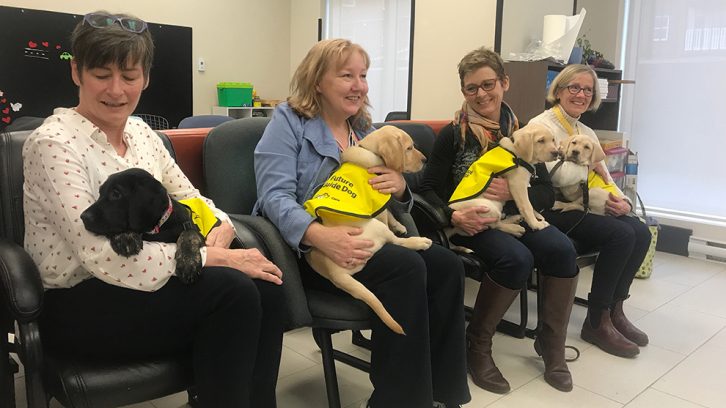Service Animals
CNIB begins guide dog training in Halifax with four new puppies
The puppies spend about two years training
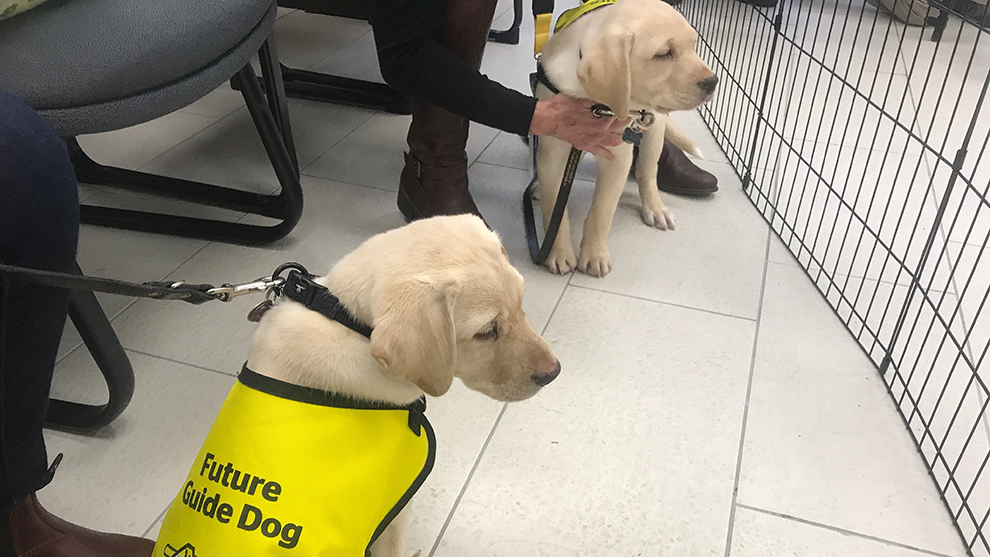
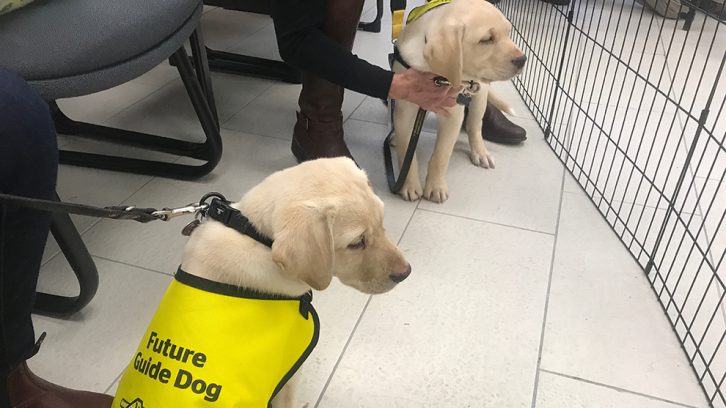
caption
Sherman (left) and Dunstan (right) sporting their training vests.Four playful puppies have landed in Halifax, with a hope and goal of becoming guide dogs.
The labrador puppies — Daisy, Dunstan, Marion and Sherman — are the first puppies to begin training in Halifax with the Canadian National Institute for the Blind. They gathered together for their first official playdate on Monday at CNIB in Halifax.
“There’s a big need for people who use guide dogs,” said Carl McIntosh, CNIB’s puppy raising supervisor, on Monday. He’s based in Ottawa and will periodically travel to Halifax to supervise the training.
“There’s quite an extensive waiting list for (Canadians) to get a guide dog.” Related stories
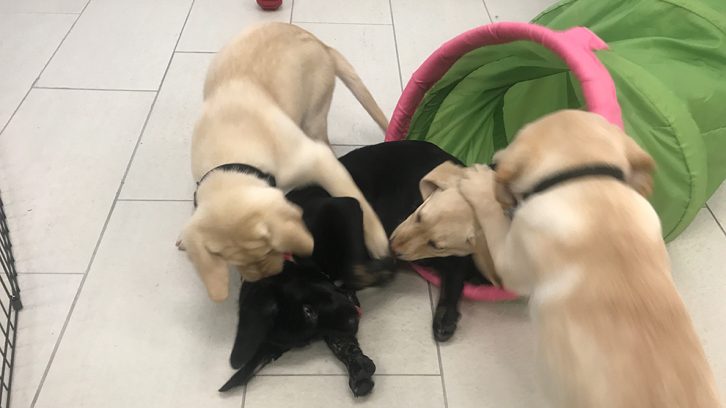
caption
Puppy free for all.The 10-week-old pups are fifth-generation guide dogs. They are from the same litter in Australia and part of the Career Dogs program.
Each dog was matched up with a volunteer puppy raiser family in the Halifax area on Jan. 28. For the next year, the volunteers are tasked with giving the puppies basic training and lots of social interaction in public places.
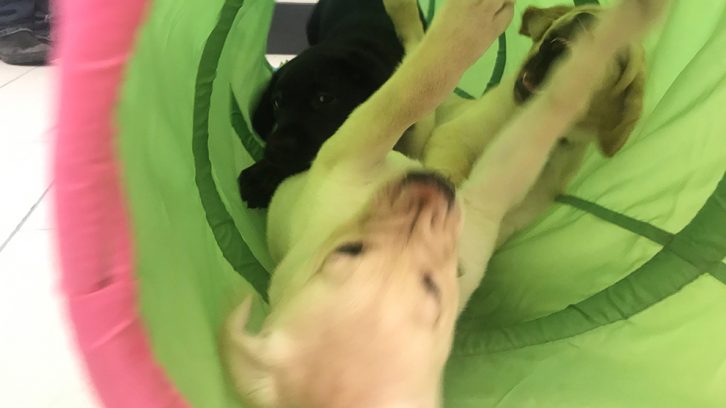
caption
One of the puppies spends a bit of time playing inside a tube.Catherine Kieran, a volunteer and CNIB’s communications manager, said that, under legislation, guide dogs can go anywhere a person goes, but the puppies can’t until they are fully certified guide dogs.
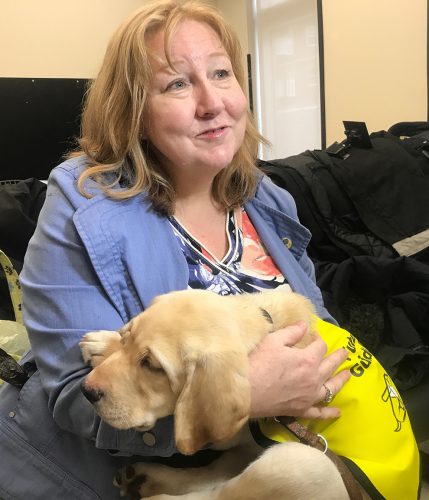
caption
Catherine Kieran cuddles with the puppy she’s raising, Sherman“We’re relying on the goodwill of the community to allow the puppies into public places, so that they can get experience,” said Kieran. “That’s how we’re going to set them up for success.”
Sherman is Kieran’s first puppy and she compares watching him to having a toddler.
“I’m loving every moment of it,” she said.
McIntosh said that it will take a year-and-a-half to two years before the animals could work as guide dogs. In a year, the puppies will be assessed to determine if they can go onto advanced training.
“They have to be obedient,” said McIntosh. “They have to be walking nicely on a lead; we want them slightly advanced left hand side— no pulling, nice loose leash. That’s the main part of getting them ready for being a guide dog.”
If the puppies are accepted into advanced training, it will last four to six months. If the dogs make it through advanced training they will be paired with a “guide dog user.” Together, they will go through another four-week training course with a “guide dog mobility instructor,” before going off on their own as a pair. The instructor will make a house visit a week later for a final follow-up.
McIntosh said that “being a guide dog is a very special thing,” so if 50 per cent of the puppies become guide dogs, it would be “fantastic.”
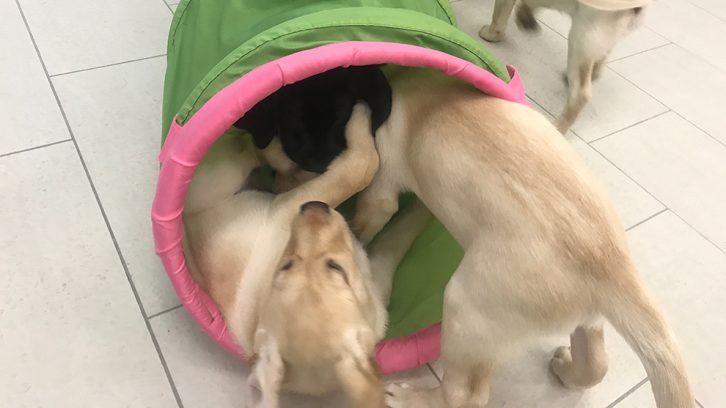
caption
It could be two years before a puppy is ready to be a guide dog.The local CNIB says there are two more dogs, both eight weeks old, coming to Halifax on Feb. 21. They will be placed with families who will raise them, as is the case with the other four dogs.
“We’re going to continue it forever,” said McIntosh, as they want to get the current number of in-training puppies in Halifax up to 10.
Any pups that don’t make it through to guide dog certification will be entered into other programs.
Volunteer Elaine Mattatall was also at Monday’s event. She said it will be difficult to give up her pup, Dunstan, after a year, but it will be worth it.
“We have had a chance to see the difference that these dogs can make in someone’s lives,” said Mattatall. “We know he’s kind of meant for a greater purpose than to just be friends with us.”
